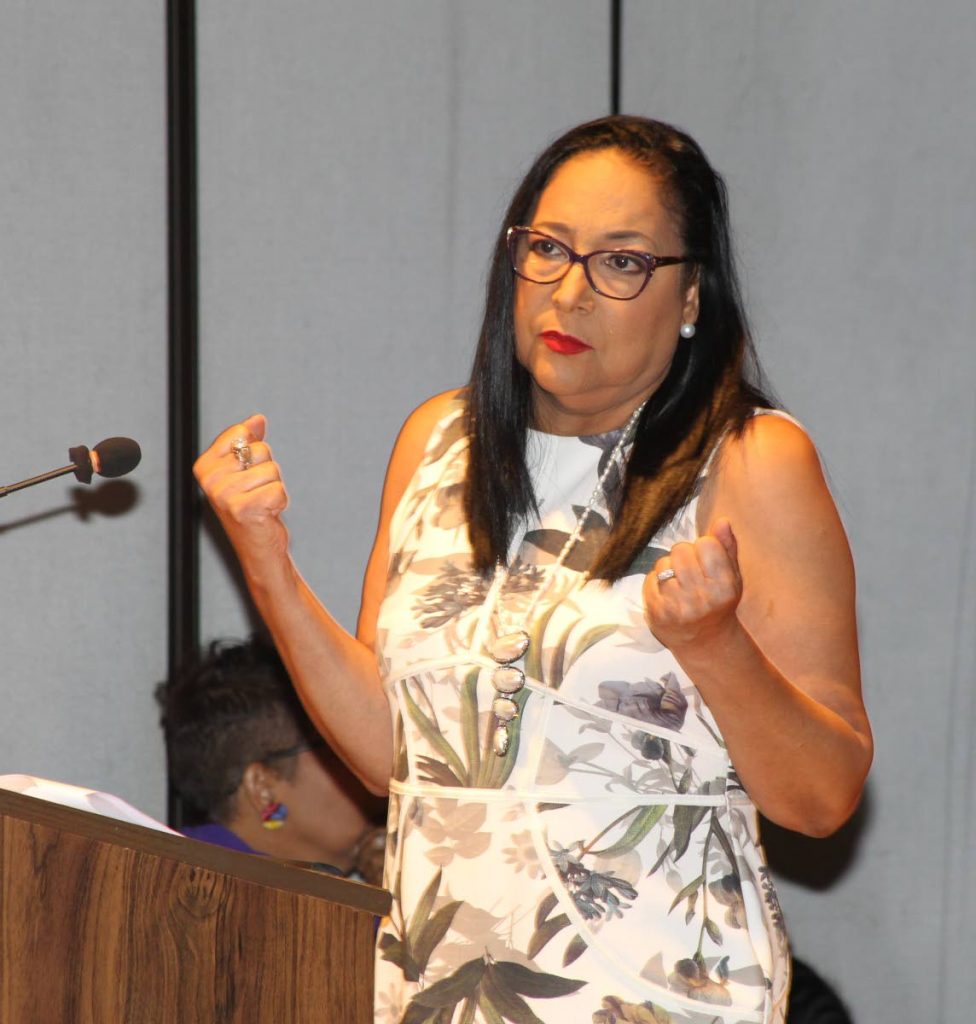Magistrates can deny bail but don't

Under the Domestic Violence Act, magistrates have always had the ability to deny bail to a person who has violated a protection order. However, bail is almost always granted when the protection order is breached. This was the statement Lynette Seebaran-Suite, chairman of the Equal Opportunity Commission gave Newsday yesterday.
Seebaran-Suite said, "My personal experience as a litigator in the domestic violence court is that bail is seldom refused and the perpetrator, whether the magistrate made an inquiry (into) whether the person stopped doing what they were doing.
"What I am saying is there ought to be more sensitivity to the potential for continuing of intimate-partner violence where the person has been charged with breach of the protection order and they may be continue to menace the protection order. It should be taken on a case by case basis, and the magistrate should be cognisant or remember, they should consider, they have the power."
On Thursday, Seebaran-Suite highlighted the underutilised powers the police and court had to deal with domestic violence cases at a symposium called Deepening the dialogue: Strengthening domestic violence policy and charting a way forward at the University of the West Indies (UWI), St Augustine campus.
In her presentation, she showed parts of Section 27 of the Domestic Violence Act which stated: "On an application for bail on a charge of Breach of a PO the Magistrate shall consider: The need to protect the applicant from DV section 27(1)(a); welfare of children section 27(1)(b) and (c); hardship to the defendant section 27(1)(d); in granting bail the court can set conditions section 27(2); on breach of condition police may arrest without warrant section 27(3)."
She said there were so many provisions which empowered the police and the court to take a zero-tolerance approach to domestic violence offenders, but were not being operated to a full capacity.
She said restricting bail to a protection order violator must be taken on a case-by-case basis, especially looking at the person's demeanour, the nature of the protection order or if the person was still stalking or threatening the victim.
Seebaran-Suite said she did not want to be seen as criticising the magistrates, but rather reminding them of the abilities they had.
In a telephone interview yesterday, Roberta Clarke, president of the Coalition Against Domestic Violence, said bail was a constitutional right. However, it would have to depend on the nature of the breach.
Clarke said protection orders could come in different forms ranging from failure to pay child support to threats to kill and attacks.
She said all breaches of the protection order should be followed up by the police.
"All breaches should be treated as the law sets out. There should be zero-tolerance by the police. Once a person reports a domestic violence case, they must investigate and do a follow up and if the investigation reveals a criminal offence, they must arrest. The police must do their job."
Contacted for comment yesterday, Opposition Senator Khadijah Ameen said the United National Congress (UNC) had always been firm about the need for the country to protect vulnerable women who were susceptible to domestic violence. But the idea of denying bail was one where the rights of the perpetrator and the protection of the victim has to be carefully balanced.



Comments
"Magistrates can deny bail but don't"